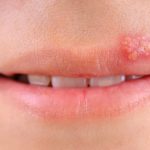Vitamin D has long been hailed for its crucial role in bone health, but its potential benefits for preventing other diseases, particularly cancer and cardiovascular disease, have been a subject of extensive research. A recent large-scale trial provides valuable insights, shedding light on what supplemental high-dose vitamin D can and cannot do for generally healthy …
Vitamin D has long been hailed for its crucial role in bone health, but its potential benefits for preventing other diseases, particularly cancer and cardiovascular disease, have been a subject of extensive research. A recent large-scale trial provides valuable insights, shedding light on what supplemental high-dose vitamin D can and cannot do for generally healthy individuals.
Vitamin D and Cancer: A Nuanced Picture
The trial, involving over 25,000 participants, examined the effect of vitamin D supplementation on cancer incidence and mortality.
- Overall Cancer Incidence: While there was a small reduction in the number of cancers observed in the vitamin D group compared to the placebo group, this difference was not statistically significant. Supplemental vitamin D did not significantly reduce the occurrence of breast, prostate, or colorectal cancers when considered individually.
- Cancer Deaths: Interestingly, the findings were more promising regarding cancer mortality. There was a suggestive 17% reduction in cancer deaths in the vitamin D group. This reduction became even more pronounced, a 25% reduction, when analyses excluded the first two years of follow-up – a common practice in cancer research to account for the slow-developing nature of the disease.
- Specific Populations: Furthermore, African Americans assigned to vitamin D experienced a suggestive 23% reduction in cancer risk, though this finding requires further research for confirmation.
In summary for cancer: While vitamin D did not significantly lower the risk of developing cancer in the overall healthy population, there appears to be a promising trend towards reducing cancer deaths, particularly after extended follow-up.
Vitamin D and Cardiovascular Disease: No Significant Impact
The study also investigated the link between vitamin D supplementation and major cardiovascular events.
- Major Cardiovascular Events: A total of 396 major cardiovascular events (heart attack, stroke, or death from cardiovascular causes) occurred in the vitamin D group, compared to 409 in the placebo group. This small difference was not statistically significant.
- Individual Events & All-Cause Mortality: Supplemental vitamin D did not reduce the occurrence of heart attack, stroke, or cardiovascular death when considered individually, nor did it reduce the overall risk of death from any cause.
In summary for CVD: High-dose vitamin D supplementation did not significantly lower the risk of developing cardiovascular disease or related events in generally healthy men and women.
Safety Profile: Well-Tolerated
One positive takeaway from the trial is the safety of high-dose vitamin D. The study found few side effects, with no significant increases in the risk of hypercalcemia (high blood calcium levels), kidney stones, or gastrointestinal symptoms.
Clinical Perspective and Recommendations
Dr. Manson, a lead researcher, summarized the findings: “The promising results for cancer mortality need to be confirmed in extended follow-up of the study participants and in future trials.” She emphasized that while a daily dose of 2000 IU of vitamin D was well-tolerated, the results do not strongly support initiating high-dose vitamin D for the primary prevention of cancer or cardiovascular disease in healthy patients who already meet vitamin D requirements for bone health.
Current national guidelines for vitamin D intake from food and/or supplements recommend:
- 600 IU per day for adults up to age 70.
- 800 IU per day for those aged 71 and older.
Key Takeaway: While vitamin D remains essential for bone health, and the potential for reducing cancer mortality is intriguing and warrants further study, these findings suggest that healthy individuals meeting basic vitamin D requirements may not derive significant additional benefits for widespread cancer or cardiovascular disease prevention from high-dose supplementation.
VITamin D and OmegA-3 TriaL (VITAL Study)
Brigham and Women’s Hospital, an affiliate of Harvard Medical SchoolAlways consult with your healthcare provider or a qualified dietitian for personalized advice regarding your vitamin D intake and overall health strategy.








